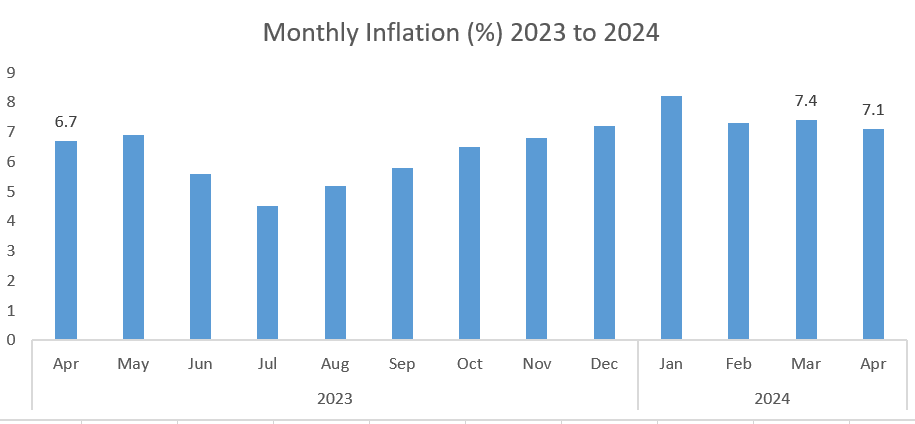The Central Bank of Lesotho (the Bank) promotes the development of financial markets in Lesotho through managing official foreign reserves, implementation of monetary policy through Open Market Operations, and contracting and managing the Government’s domestic debt through issuance and redemption of Treasury Securities. Recent establishment of Maseru Securities Market trading platform will go a long way in deepening the market and enhancing secondary market activities.
Reserves Management
Through the Department of Financial Markets, the Bank is mandated by section 6 (f), of the Central Bank of Lesotho Act No.2 2000 (the Act) to own, hold and manage its official international reserves. The primary motive of the Bank for holding reserves is to maintain the value of the Loti (LSL) and to be in a position to settle the country’s international obligations promptly.
Consistent with the motive for holding international reserves, the Bank adopts the following objectives for managing the reserves in the priority ranking shown below:
- Provide adequate liquidity to meet all external obligations of the Bank and its clients
- Maintain the international value and safety of the reserves.
- Earn reasonable returns.
Government Domestic Debt
(a) Treasury Bills
Currently there are four tenors of T-Bills offered by the Central Bank of Lesotho. These are; the 91, 182, 273 and 364 days T-Bills. The sale of Treasury Bills is divided into two markets namely competitive and non-competitive market. For the non-competitive market (i.e. M5, 000 – M99, 900), a price at which Treasury Bills are sold is predetermined. All participants in this market will be buying for the same price. The participants are largely the general public and small to medium companies. For the competitive market (M100, 000 and above), the tendered yield rate must be specified and securities are sold to those with lowest yields. In this market, participants are mainly commercial banks, insurance houses and big companies.
The Bank issues Treasury Bills with maturities not exceeding 364 days. The Bank determines the manner of issuance and allocation of T-Bills. They are issued on a discount basis, for values in multiples of M 100 and redeemed at their face value at maturity. The computation of the bid price, given the rate of discount shall be based on the actual number of days to maturity with a year consisting of 365 days using the formula shown below:
Bid Price = FV – (FV * DR * Days to Maturity/365)
Where: FV = Face Value
DR = Discount Rate
Announcements relating to new issues of Treasury Bills are made primarily through notices in local newspapers and the Bank’s website. The Bank reserves the right to accept or reject all or any portion of any or all applications. Treasury bills may be purchased by any person or entity. The minimum bid for all tenors is M 5000
Auctions are ordinarily held twice a month on Wednesdays. Invitations for bids shall begin 7 days before the auction date and continue until the day before the auction date. Bids must be submitted on forms CBL/TBR/1 available at the Bank’s premises. The results of the tender shall usually be announced at 2 p.m. on the auction day. The announcement shall be in the form of written notifications to all applicants. Payment for allocations shall be received immediately after the announcement of auction results. Failure to pay for successful bids will result to such bidders being barred from participating in future auctions for a period of 6 months. The Bank will issue Award Advices to investors but shall keep securities in Central Securities Depository (CSD) on their behalf. Investors may request a statement of the balance of treasury bills holdings. Such a statement shall only reflect the face value (not the market value) and maturity date of their holdings.
(b) Treasury Bonds
The Central Bank of Lesotho as fiscal agent to the Government of Lesotho, issues Treasury Bonds. These are securities with maturity of more than one year. Investors buying Treasury bonds are lending the Government money for a specified period of time which is the bond’s maturity period. Treasury bonds disburse interest (coupon) payments semi-annually on the face value held during the life of the bond. The objectives of issuing these bonds are two-fold:
i. To finance government budgetary needs, and
ii. To develop the domestic debt market
At the beginning of each fiscal year, the Ministry of Finance determines the budgetary gap to be financed from the domestic market. The Bank then comes up with a borrowing plan which it implements through auctions of Treasury bonds.
Currently, Treasury bonds market has four maturities ranging from 3, 5, 7 and 10 years that are issued in the primary market by the Bank. Commercial banks, pension funds, insurance companies, corporate entities and individuals are investors. The auction is held once every three months. Secondary market trading of government bonds is growing timidly, as investors prefer to hold till maturity. The bonds are listed at the Maseru Securities Market (MSM) for secondary market trading. The allowed bid amounts are similar to the treasury bills. The Bank manages the registry (Central Securities Depository) and maintains the database for securities held by investors.



